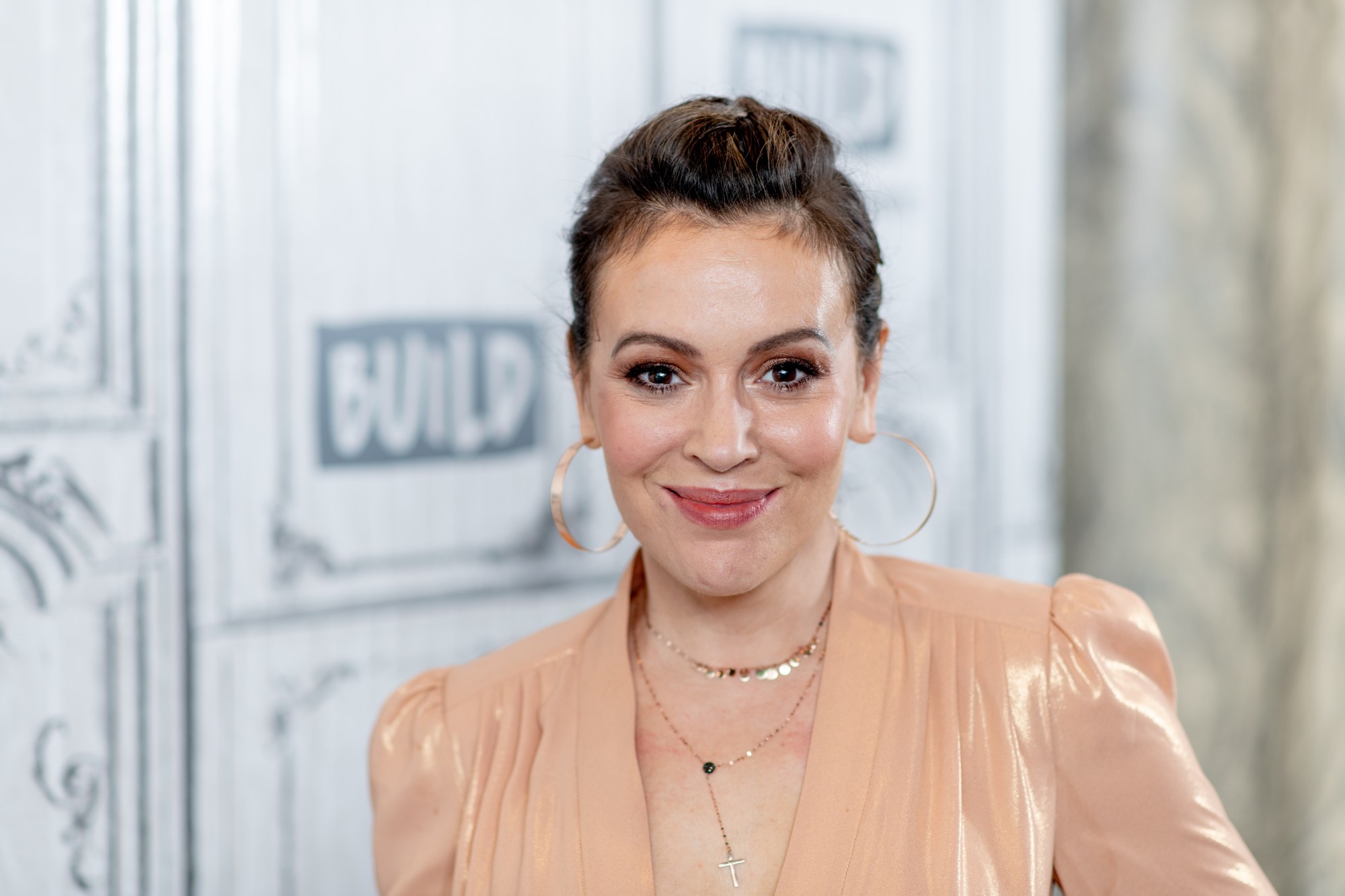
- Interviews
HFPA In Conversation: Alyssa Milano – Teen Icon, Actress, Activist
Lately, she has been in the headlines because of the #metoo movement, fighting for the Equal Rights Amendment and addressing fat-shaming on her new Netflix TV show Insatiable. In this podcast, Alyssa Milano – known for TV series like Who’s the Boss, Melrose Place, Charmed, and Mistresses – tells HFPA journalist Helen Hoehne how she became the person she is today. “I think the first thing I was attracted to Insatiable was the fact that there was so much humor to it. And the script as I was reading it, felt like it was always straddling the line between being outrageously inappropriate and very grounded. I thought that that was tonally something that I hadn’t seen on television. I think as you get older, I’m now in my mid-forties, what you look for in roles and projects kind of shift. I knew that I didn’t want to just do another pilot where I was playing the wife of someone that didn’t have any sort of real depth or substance behind it. I knew that I wanted to do a project where all of the elements were something that I could be excited about going to work every day, whether that be the cast or the directors or the writers.”
Her character, Coralee Armstrong, is someone she never played before. “She has a very thick southern accent, she’s got big hair and fake nails, and she’s really a believer of the higher the hair, the closer to god, that whole mentality. I thought that that would be challenging and that was exciting.”
She began her career at age seven when she got one of the main parts of the touring musical Annie. “Looking back to when I was 10 years old and I got Who’s the Boss, there is a very distinct journey that I had to go on to be the person that I am right now. If that means do I think I was born to be a performer and to be doing what I’m doing right now? Yes. Because I do think I’ve reached this point for a very specific reason, and I had to be on the same trajectory that I’ve been on since I was 10 to get right here right now. That’s a really special thing to be able to say and to look back at my life and say even the hardships, even the things that weren’t easy, were purposeful and meant something to get me here. I feel so blessed that I’m able to continue to work and that my projects have resonated with people and in people’s homes. But the most important thing to me is what I do with that trust that people have given me as a performer.”
When Milano shared the #metoo tweet she knew that women across every industry have had to struggle with sexual harassment, assault or abuse, but she couldn’t have expected it to be as monumental of a moment as it turned out to be. She has seen changes in the recent months.“I think there’s been incredible change already and I think it needs to continue. The change that I’ve seen stems from the fact that women are supporting each other much more than they ever were before, that we are not being silenced and that we feel that we do need to hold people accountable for their actions.”
In Hollywood, the narrative is beginning to shift. “Whether that means specifically asking for female writers or female directors to tell female stories or a bigger cast of women to make the dynamics relatable to a broader audience, I think that is spectacular because I think art will look different.”
Listen to the podcast and hear why her audition for Annie – when she was seven years old – is a very distinct moment in her life’ who was with her in that audition and why she felt jealousy; how she felt about living with her dad in Los Angeles when filming the first season of Who’s the Boss
Listen to the conversation here or, for immediate access to all of our podcasts, subscribe to HFPA in Conversation on iTunes.

